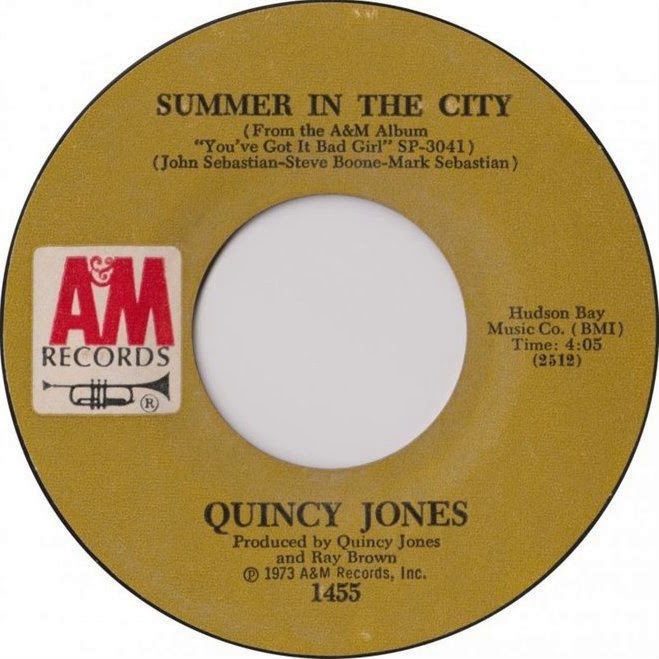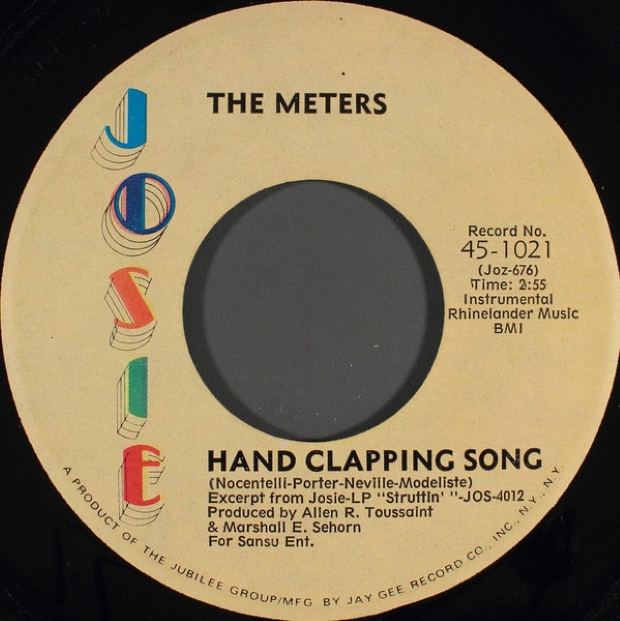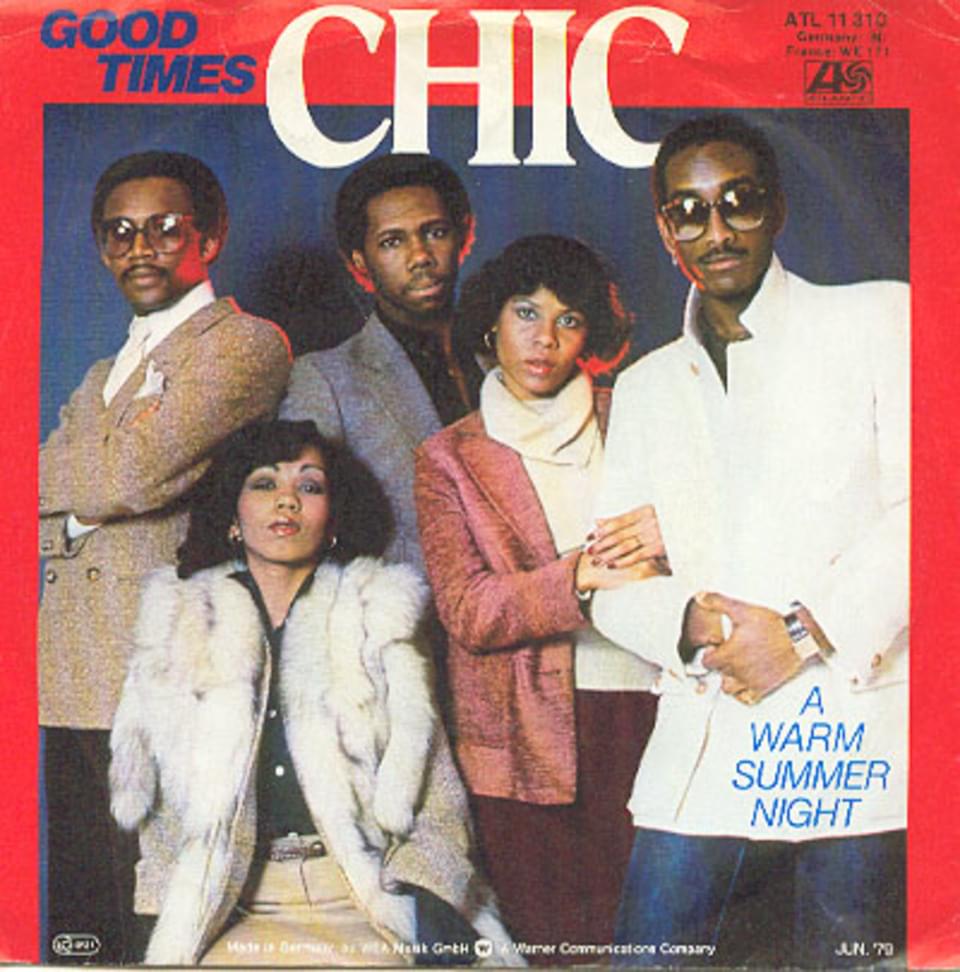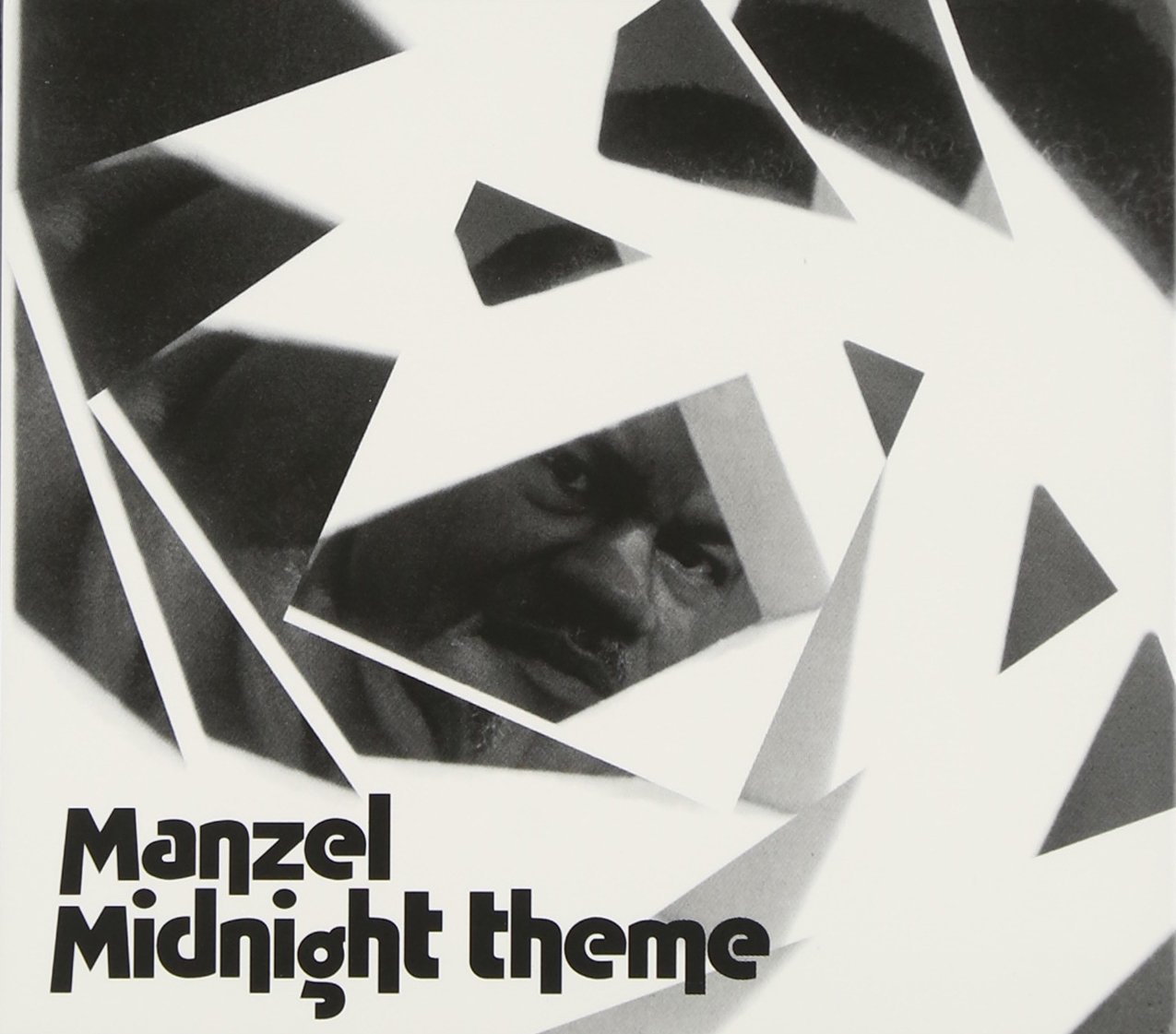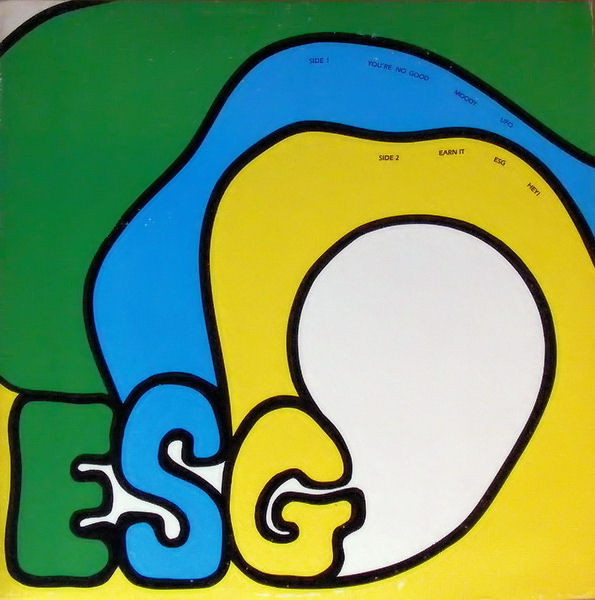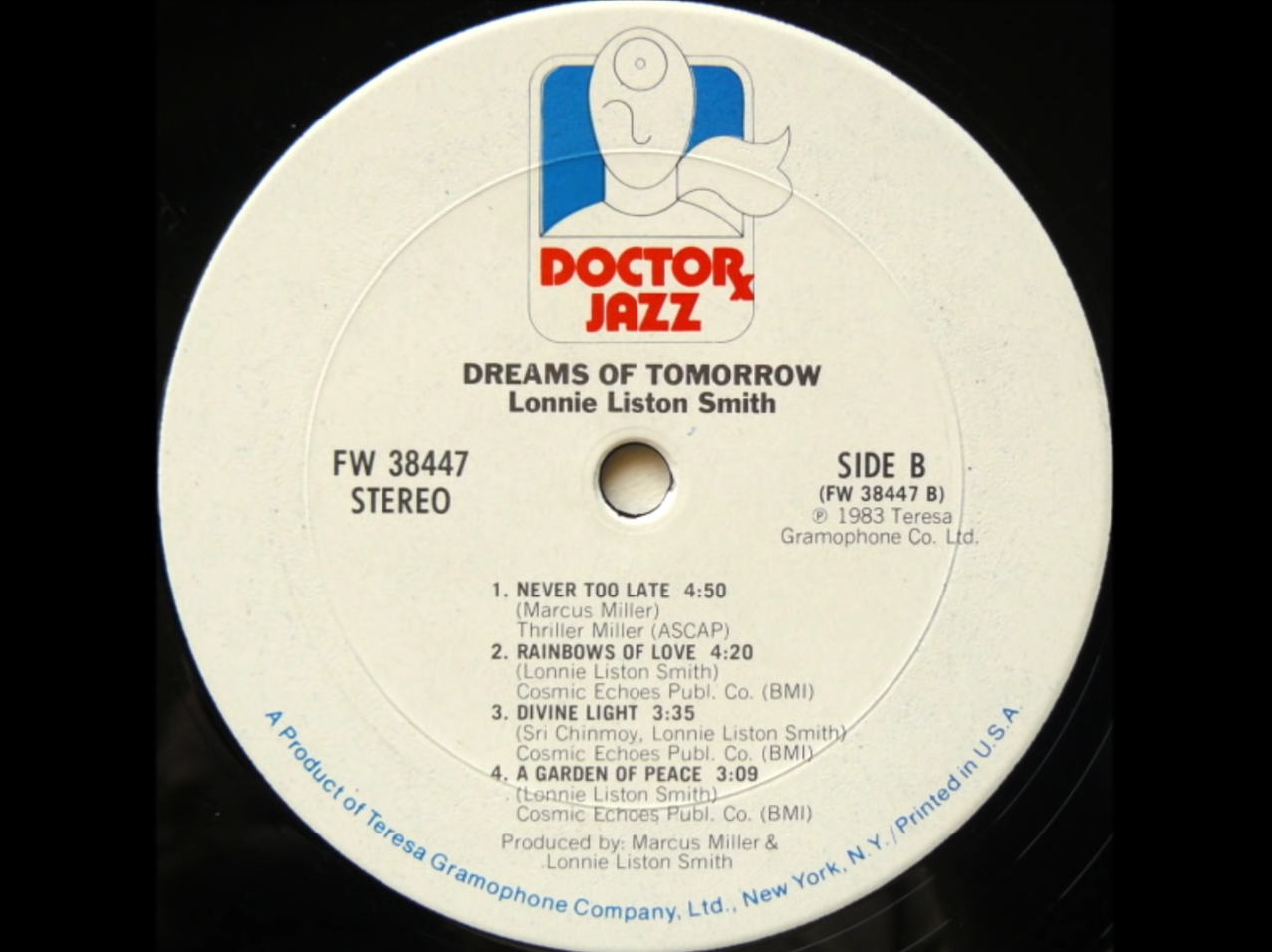This feels like one of those statements that seems obvious to the point of redundancy, but it's always worth pointing out: Isaac Hayes is one of the great pillars of sampling. Songs that the Black Moses Of Soul wrote, produced, and/or performed have been just as integral to how hip-hop sounded in the '80s and '90s as anyone. Look at the Wu-Tang discography alone. From the Hayes/David Porter-produced Charmels providing the source for "C.R.E.A.M." to the Hayes' appearance on "Walk On By" flip "I Can't Go To Sleep," Hayes seems akin to RZA what George Clinton was to Dre, and what James Brown was to the Bomb Squad.
Not that the Wu were alone in this. Hayes' ear for composition and orchestration brought enough of a dramatic, luxurious sweep to funk and soul that rearranging it in a beat became a particularly effective way to give a certain velvety operatic intensity to a track. From Portishead's "Glory Box" ("Ike's Rap II") to the Irv Gotti beat for Jay-Z's "Can I Live" ("The Look Of Love") to Moodymann's "Got Me Coming Back Right Now" ("Moonlight Lovin' (Menage A Trois"), there's no exemplar of a sample-based genre that hasn't found themselves deeply engaged with Hayes' work.
And since it's Halloween, it's a good time to look into one of the finest usages of Hayes' music to create an atmospherically anxious, cinematic beat. When Scarface flipped Hayes' "Hung Up On My Baby" for the Geto Boys' 1991 classic "Mind Playing Tricks On Me," it gave the Texas rap icons a hard-earned Soundscan-era hit -- #1 on the Hot Rap Singles chart, and #23 on the Billboard Hot 100 -- that practically wrote the book on Southern gothic gangsta paranoia. Ever since, it's felt like a perennial classic of horror-story hip-hop. And "Hung Up On My Baby" has undergone all kinds of different moods as it's passed through a number of hands. It's not the most widespread of breaks, but nearly every time someone uses it, it stands out.
The Original: Isaac Hayes, "Hung Up On My Baby" (from Tough Guys, Enterprise, 1974)
https://youtube.com/watch?v=w0YpfkVeJqk
I've never seen Three Tough Guys aside from its tawdry-looking trailer, but it seems like it'd be a pulp classic, given everything I know about the people involved: Hayes in his first acting role as a cold-blooded ex-cop; French-Italian crime-flick great Lino Ventura as a punch-happy priest; Fred "The Hammer" Williamson as a scumbag robber; and A Fistful Of Dollars co-writer Duccio Tessari directing. Then again, I've also read that it's not so great, and no way can it possibly measure up to the berserk ridiculousness of Hayes' other starring/scoring role of '74, the bounty hunter-vs-pimp conspiracy gun-blazer Truck Turner.
But forget the movie. Hayes' soundtrack (simply titled Tough Guys, as it was initially unclear how many Tough Guys the movie was going to market under its title) is every bit as much of a jam as the Shaft soundtrack, and then some. Granted, there's nothing as immortal as "Theme From 'Shaft'" on it, but its own theme song is mighty unstoppable, and other music cues show off Hayes' compositional strengths with brooding soul jazz and suspenseful psych-funk.
But "Hung Up On My Baby" is a centerpiece if there ever was one -- the longest and deepest instrumental cut on the whole record, one where the familiar sampled cues on other records can't even begin to get at all its intricacies. Charles "Skip" Pitts is the standout player here, and no surprise; the man is an under-heralded guitar great and key member of the Isaac Hayes Movement who came up with the riff to the Isley Brothers' "It's Your Thing" and played the famous wah-wah guitar on "Theme from 'Shaft'." On "Hung Up" he plays not just those familiar licks that "Mind Playing Tricks On Me" was built around, he rolls out this fuzzed-out solo, aided by a Gibson Maestro Rhythm N Sound, with the kind of sound that the phrase "face-melting" was invented to describe. (Assuming it's not played by Michael Toles, anyways; it does have the ring of his "Walk On By" note-bending vertigo, even if a July 2011 Guitar Player profile credits Pitts.)
The First Sample / The Breakthrough Sample: Geto Boys, "Mind Playing Tricks On Me" (from We Can't Be Stopped, Rap-A-Lot Records, 1991)
With some of the old workhorse Ultimate Breaks And Beats samples, the earliest usage isn't always the most notable or the best, but Scarface flipped "Hung Up" in a way that no producer, no matter how great, has really been able to match. It's not just that he found the perfect beat to use for a conceptual track like this, focusing on the blues-y guitar figure that places it in the general vicinity of old murder ballads and fusing it seamlessly with a drum break from Graham Central Station's "The Jam" slowed down for maximum impact. It's that he built a new verse-chorus-verse structure around the loops he made, and let the chorus play out on its own without vocals -- a rare but well-deployed instance of a hip-hop anthem with an instrumental hook more memorable than some rappers' vocals. Then again, most of the Geto Boys' individual lines are, too -- every 20 seconds got me peepin' out my window; three blind crippled and crazy senior citizens; it wasn't even close to Halloween. Those words and that beat are forever inseparable.
The Early Sample: 2nd II None, "If You Want It" (from 2nd II None, Profile Records, 1991)
This is why I said "no producer, no matter how great" has been able to use this sample as well. When you're DJ Quik, the man who deserves as much (if not more) credit as Dr. Dre for pioneering and popularizing g-funk, and you've made the second-best use of a sample? There's no real shame in being the runner-up. I couldn't find any info as to whether 2nd II None's "If You Want It," which came out on their self-titled album two months after We Can't Be Stopped, was a deliberate case of versioning a recently hot sample or just a great-minds coincidence. There's no beef from it, either, as far as I can tell; Quik's said he's been cool with Scarface since they met in '91, and they put out a collab EP last year, so everybody wins. The lascivious (if somehow technically radio-friendly) gangsta love song benefits from Quik pitching the sample up just enough that it shifts from an overcast rumination to celebratory romance. Assuming "romance" is the word to use for a line like "I got a nice piece of meat that'll fit you to the tee." Los Angeles' own Jeff Weiss said it best: "There’s no calculus for measuring the morbid embarrassment you felt when your parents were driving and 'If you need it, baby I’ll feed it. If you love it, come and rub it,' came on Power 106."
The Weirdo Sample: Glass Candy, "Geto Boys" (12", Italians Do It Better, 2009)
Can something be obvious and inspired at the same time? I guess this is one of those recursive situations where this song isn't necessarily a cover version, but it acknowledges its source anyways, because why bother hiding it? This cut by Glass Candy -- originally released as a "demo" on their MySpace page back in 2007 -- feels more like the stuff reggae singers and toasters did a few decades previous than anything akin to hip-hop or dance music. It takes an already existing instrumental and messes with its fidelity and its rhythmic space en route to putting a vocalist's own stamp on it. Johnny Jewel isn't at full King Tubby here or anything, though he tweaks the loops and basslines, adding his own beats to the proceedings to make it feel more in keeping with the electro/Italo/balearic vibes his production jobs typically benefit. And Ida No weaving in lyrics from Sugar Boy Crawford's New Orleans classic "Iko Iko" -- not for the first time, either -- makes this a mash-up, too, so that's another layer. The important thing is that it's a whole new vibe, a mellow body high instead of the anxiety-stoking strain that the Geto Boys came up with.
The Recent Sample: Angelo Ferreri, "Positive Humour" (MP3, Glasgow Underground, 2018)
The shivering-trap-snare update in Kodak Black's "Transportin'" might get all the YouTube hits, but for my money the most fascinating use of "Hung Up On My Baby" that I've found from recent years comes from a Sicily-born house DJ/producer who made the most of its familiarity. It's a long, slow build to that recognizable guitar riff, but when it finally emerges for the first time just before the two-minute mark, it's a hell of a ride following the way it phases in and out of the mix before finally taking on a prominent place in the foreground. Ferreri's dropped other recent tracks that have this sort of Kenny "Dope" Gonzalez-style sense of well-deployed hip-hop-friendly breaks woven into house tracks -- he even did his own flip of Chicago's "Street Player" a'la Kenny's work on "The Bomb! (These Sounds Fall Into My Mind)" -- so consider this a couple different traditions upheld.

